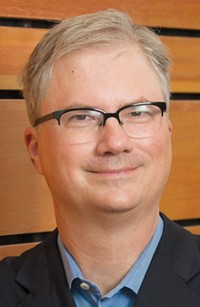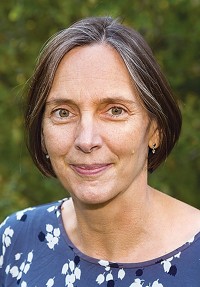Advertisement
Grab your lab coat. Let's get started
Welcome!
Welcome!
Create an account below to get 6 C&EN articles per month, receive newsletters and more - all free.
It seems this is your first time logging in online. Please enter the following information to continue.
As an ACS member you automatically get access to this site. All we need is few more details to create your reading experience.
Not you? Sign in with a different account.
Not you? Sign in with a different account.
ERROR 1
ERROR 1
ERROR 2
ERROR 2
ERROR 2
ERROR 2
ERROR 2
Password and Confirm password must match.
If you have an ACS member number, please enter it here so we can link this account to your membership. (optional)
ERROR 2
ACS values your privacy. By submitting your information, you are gaining access to C&EN and subscribing to our weekly newsletter. We use the information you provide to make your reading experience better, and we will never sell your data to third party members.
Careers
Hospital-Based Research
July 7, 2008
| A version of this story appeared in
Volume 86, Issue 27
May 5, page 58: The 19th Winter Fluorine Conference will feature an award address by the winner of the 2009 ACS Award for Creative Work in Fluorine Chemistry, whose name has yet to be announced, not the 2008 winner.
I enjoyed reading “Working at the Hospital” (C&EN, May 12, page 55). Such interdisciplinary endeavors illustrate chemistry’s centrality. However, I would like to add two points that I believe merit attention and are likely to play an increasing role in biomedical research in the years to come.
First, as stated in the article, “Communication is a critical skill for chemists working in a biomedical context.” The need for chemists who have mastery of both clinical and scientific knowledge is high. That is, those who can speak the languages of both science and medicine are uniquely positioned for translational research in biomedical science. In this respect, I would like to have read about the perspectives of Ph.D. chemists who are also M.D.s. Such physician-scientists also contribute to biomedical research and are present at a number of university-clinical institutes.
Second, although the article emphasized the pharmacological applications of translational biomedical research, as an analytical chemist I like to think that analytical chemistry plays an increasingly important role in the development of novel tools and devices for diagnosing diseases and for monitoring treatment efficacy. It would have been nice to read about the perspectives of a fellow analytical chemist.
As an analytical chemist, I became involved in translational research about 10 years ago but realized my knowledge of clinical medicine was poor. I was inspired by several of my collaborators who are chemists, engineers, or physicians to continue my lifetime of learning. I resigned as a tenured chemistry professor and returned to school to complete the requirements for the M.D. degree. While I have continued to collaborate on a variety of clinical and translational projects during medical school and residency, I look forward to devoting more time to such research after residency and believe this investment in my education allows me unique perspectives on biomedical research at the analytical-clinical interface.
Bradford D. Pendley
Memphis




Join the conversation
Contact the reporter
Submit a Letter to the Editor for publication
Engage with us on Twitter